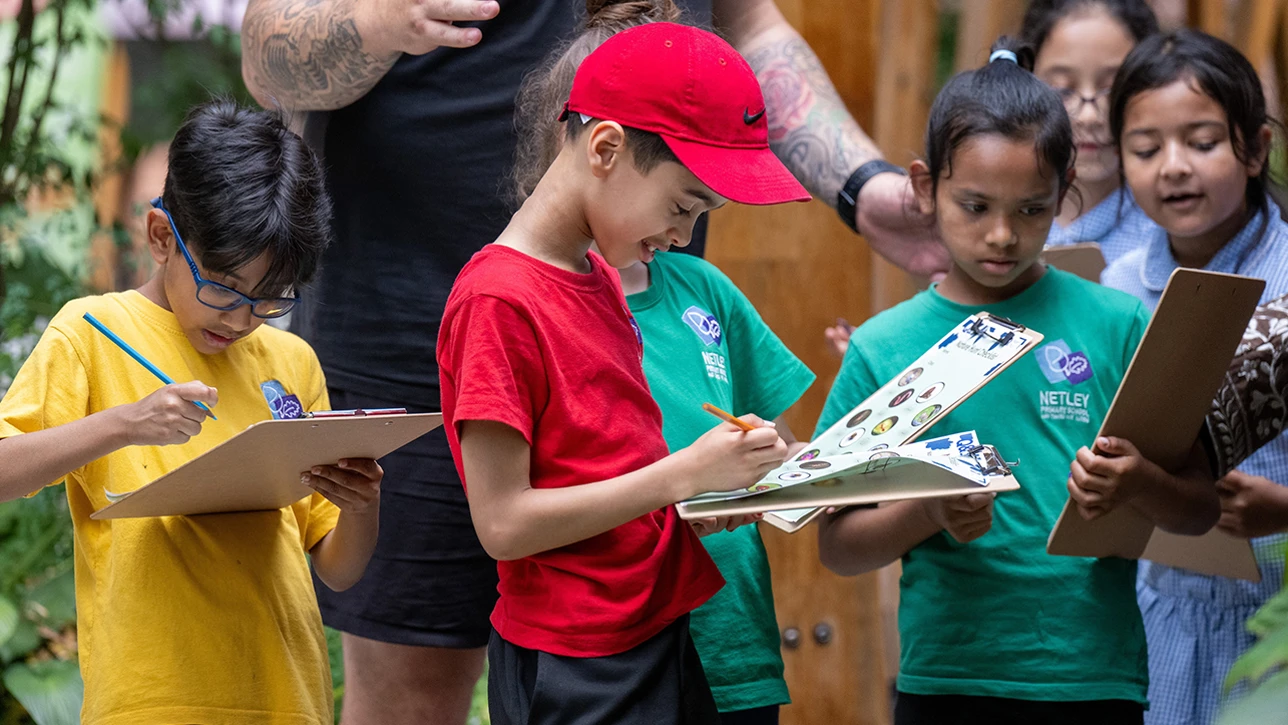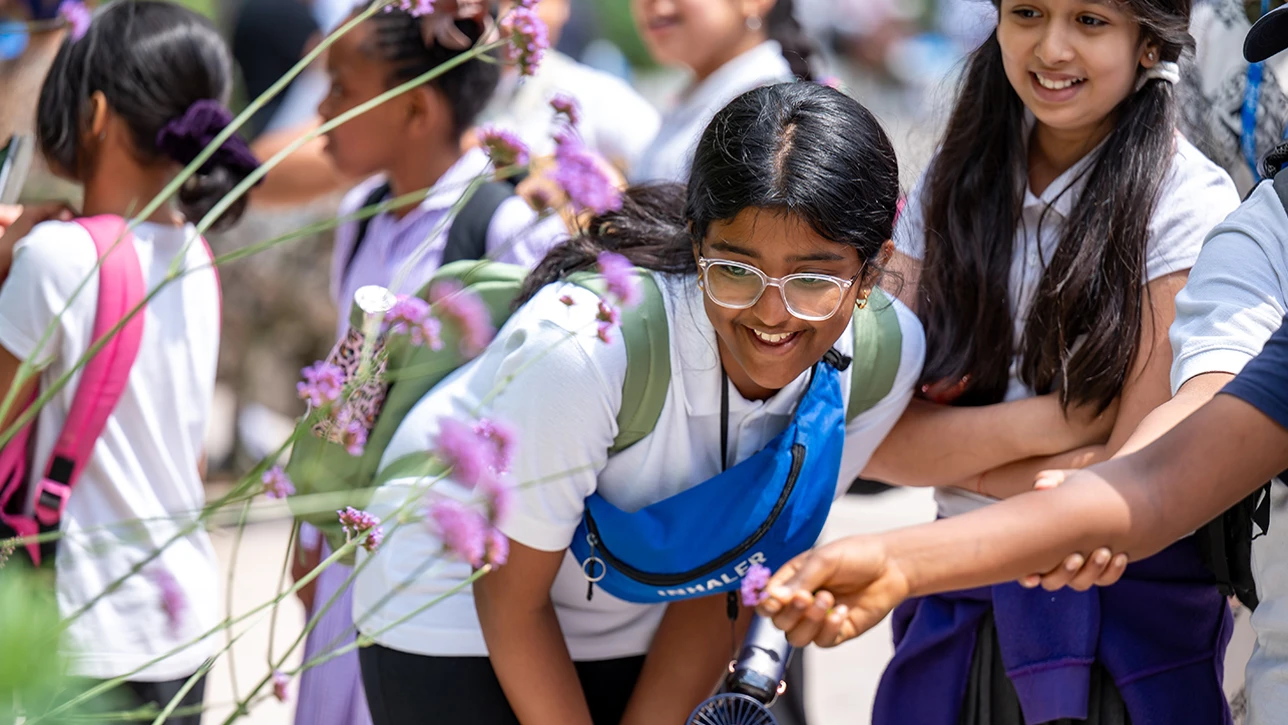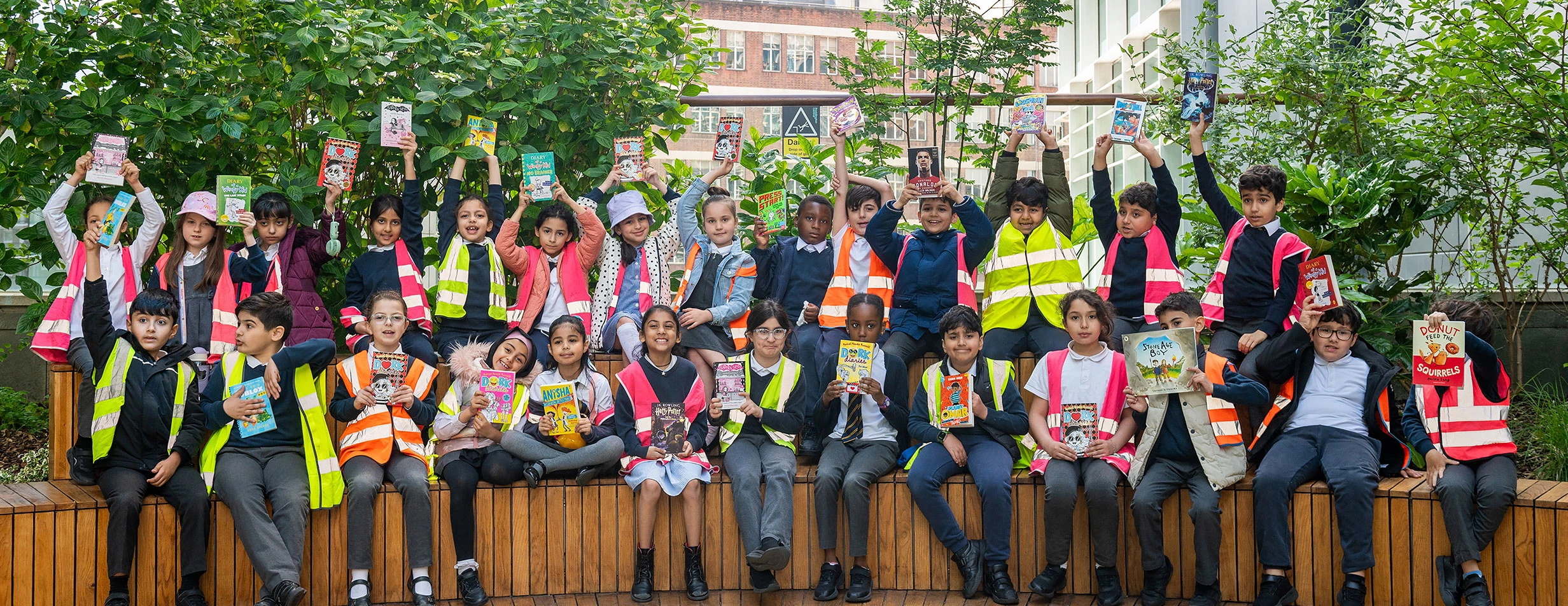Given the clear evidence that investing in literacy reduces inequalities and strengthens the skills vital to the success of our business and our customers, the real question is: why isn’t everyone investing in it? British Land’s partnership with the National Literacy Trust is the UK’s largest and longest running corporate literacy programme. Since 2011, we’ve inspired over 79,000 schoolchildren to discover the life-changing power of reading.
Why does literacy matter?
Strong literacy skills are essential for all UK businesses, boosting productivity, reducing costly mistakes and building a more resilient workforce. Yet, an estimated eight million adults across the UK struggle with low literacy. This also has huge impacts on people’s lives, affecting their confidence, opportunities and the wellbeing of communities nationwide.
9 in 10 business leaders are concerned about young people’s level of literacy in the workplace.
It’s no surprise, then, that many of our customers also take literacy seriously. Analysis across one of our campuses revealed that 20% of rental income comes from businesses with public commitments to improve literacy.
What are we doing to drive change?
Working collaboratively with like-minded customers, we are taking reading out of the classroom and linking it to leisure and fun. Through our Young Readers partnership with the National Literacy Trust, we’ve hosted hundreds of fun, literacy-themed events with customers across our places and gifted over 238,000 books to local schoolchildren. This is giving young people from disadvantaged communities the chance to enjoy storytelling and reading activities in retail stores, offices and restaurants, as well as at school.

Working collaboratively with like-minded customers, we are taking reading out of the classroom and linking it to leisure and fun. Through our Young Readers partnership with the National Literacy Trust, we’ve hosted hundreds of fun, literacy-themed events with customers across our places and gifted over 238,000 books to local schoolchildren. This is giving young people from disadvantaged communities the chance to enjoy storytelling and reading activities in retail stores, offices and restaurants, as well as at school.
Every child gets to choose three brand-new books to take home and keep. For some, these are the first they’ve ever owned – putting books in the hands of children who need them most. We’ve also equipped hundreds of schools with resources to help them support and motivate pupils – especially reluctant readers – to discover the joy of reading, now and for years to come.
The power of reading for pleasure
A wealth of research shows that reading enjoyment and access to books are among the best ways to improve literacy skills and help children reach their full potential. Young people who enjoy reading are three times more likely to read above the expected level for their age. What’s more, reading for pleasure in early childhood is linked to better cognitive performance and mental wellbeing in adolescence. There’s even evidence that reading enjoyment is more important for children’s educational success than their family’s socio-economic status
Reading enjoyment is more important for children’s educational success than their family’s socio-economic status.
Everything, everywhere
Our priority is literacy – not because other areas aren’t important, but because we can’t invest in everything, everywhere. By maintaining a lasting focus on literacy, we’re creating meaningful, measurable impact. Literacy also has a knock-on impact on everything from maths to critical thinking, digital skills and lifelong learning.

Our priority is literacy – not because other areas aren’t important, but because we can’t invest in everything, everywhere. By maintaining a lasting focus on literacy, we’re creating meaningful, measurable impact. Literacy also has a knock-on impact on everything from maths to critical thinking, digital skills and lifelong learning.
A study which we commissioned to mark the tenth year of our Young Readers partnership revealed that, if all children in the UK read for pleasure almost daily, the number getting five good GCSE grades could increase by 1.1 million within a generation, boosting their average lifetime earnings by £57,500 and adding £4.6bn to the UK’s GDP each year. 1
A model for collaboration
Our partnership with the National Literacy Trust is a model of how businesses, charities and communities can work together for mutual benefit. When we invest in literacy, everyone benefits – creating a more skilled future workforce for our business and our customers, helping communities thrive and strengthening the economy.
We welcome conversations with customers interested in partnering with us on literacy: sustainability@britishland.com
Explore our 2030 Sustainability Strategy: Greener Spaces, Thriving Places, Responsible Choices: www.britishland.com/sustainability
Read: Power of Reading for Pleasure
Additional sources:
National Literacy Trust: Vision for Literacy Business Pledge (2025); Children and young people’s reading (2019)
University of Cambridge: Early-Initiated Childhood Reading for Pleasure (2023)
Department for Education: Research evidence on reading for pleasure (2012)
In the words of children
In the words of Teachers
1 Power of Reading for Pleasure (2021)


